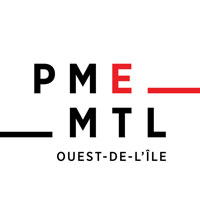A brief by John Burrascano, Industrial Commissioner, PME MTL Ouest-de-l'Île.
Despite three waves of the Covid-19 virus and the current on-going Delta variant fourth wave, the Canadian, Québec, and Montréal economies have been resilient and have held their own. As a result, Montréal’s Ouest-de-l'Île is still experiencing strong demand for industrial space.
A Glimpse of the Overall Economic and Pandemic Picture
In March 2020, Québec and the world were hit hard by the Covid-19 virus. Since that point in time, the performance of Québec’s economy has been interrupted on numerous occasions by governmental lockdown measures implemented to control and fight against the spread of the virus. Yet, by February 2021, the Québec economy regained big losses experienced over the year as the Province’s economic activity was approximately 99.4 percent of what it was one year earlier1. The economy, therefore, had virtually completely recovered.
Through the third wave of the pandemic, Canada’s economy proved to be resilient.
Governmental health care restrictions imposed during this wave still had a severe dampening effect on the services industry by April, 2021, in particular, the hotel, food services, and retail sectors of industry. The health measures, however, had a much less severe impact on the production of goods, especially, residential construction2.
By the Summer months of 2021, Canada’s widespread and successful vaccination program caused Covid-19 infection rates to fall significantly across the country and Provinces proceeded to reopen their economies. This positive situation resulted in improvement of employment levels in Canada in June, including Québec began easing some of the restrictive health measures for bars and restaurants, in particular, helped improve the employment rate. In July, expected was a strengthening of Canada’s GDP and projected was noticeable growth for the third quarter of this year due to continued easing of public health measures. As the Summer months unfurled, so did a rising new threat called the Delta variant virus, considered the fourth wave of the pandemic. By September, Covid-19 cases augmented once again to worrisome levels in parts of Canada and in the province of Québec.

For the time being, the fourth wave of the pandemic appears to be more forgiving than the first three as the economies of advanced nations’ plough ahead thanks to vaccination and the gradual lifting of protective governmental health measures, allowing an economic recovery to take hold. It cannot be forgotten, however, that, at this juncture, the true impact of the Delta variant on the Canadian economy remains to be seen.
The Pandemic and Industrial Building Market in Montréal and Ouest-de-l'Île
Demand for industrial spaces from users and investors is not slowing and expectations are that this level of demand will spill-over into the second half of this year and last for another 12-18 months. The situation has reached a point where, according to CBRE3, users must begin looking for space 2-3 years in advance. The leading demand for industrial space are still E-commerce, logistics, 3PL, and food and beverage businesses.
Pricing
Lack of existing industrial space has resulted in an average asking net lease rate of $8.24 per square foot in the Greater Montréal Metropolitan Area in Q2, 20213, compared to $7.73 per square foot in Q4, 20204 (These prices are averages across all types of leasable industrial space).
In terms of average asking sale price, it cost $151.16 per square foot to buy an industrial building in Montréal in the fourth quarter of 20204 and $153.95 per square foot in Q2, 20213.
Industrial land prices continue to rise in the Ouest-de-l'Île.
Vacancy Rates
In Q4, 2020, the industrial vacancy rate for the Ouest-de-l'Île was 1.0 percent5. It has fallen to an incredible .6 percent in Q2, 20215.
For Lachine, it had a vacancy rate of 1.5 percent in Q4, 20205, which rose somewhat to 3.5 percent in Q2, 20215.
Conclusion
Although the Covid-19 crisis has been difficult for governments and the public at large, it has proven to be beneficial for Montréal and Ouest-de-l'Île industrial real estate demand as it made bloom additional and significant demand for industrial space to lease or purchase in order to house E-commerce, logistics, 3PL, and food and beverage businesses in particular. By extension, it has caused a lack of industrial product in the marketplace resulting in important increases in asking net rental rates, the sale price of such facilities, and in the cost of industrial land.
The lack of abundant construction of new industrial buildings only worsens the situation with pricing as users and investors can expect to pay more for this asset class.
There is a very strong need for construction of new industrial buildings in the GMA. The problem now is lack of properly zoned land forcing many to build in exurbia.
--
Sources
Société des Caisse Desjardins, 2021. ˝How Is Québec’s Economy Faring One Year into the Pandemic?˝ Economic Viewpoint. By Joëlle Noreau, Sr. Economist. Desjardins, Economic Studies, June 9, 2021.
Société des Caisse Desjardins, 2021. ˝The Canadian Economy Proves More Resilient than Expected to Third Wave Restrictions.˝ Economic News. By Mikhael Deutsch-Heng, Macroeconomist. Desjardins, Economic Studies, June 30, 2021.
CBRE, 2021. ˝Too little construction breaking ground.˝ Marketview-Montreal Industrial, Q2, 2021.
CBRE, 2020. ˝A Year in Review : Montréal Industrial Sets New Benchmarks.˝ Marketview-Montréal Industrial, Q4, 2020.
Colliers International, 2020. Greater Montréal Area Industrial Market Report, Q4, 2020.
PME MTL
Ouest-de-l'Île
1675, Transcanadienne
Bureau 301
Dorval, Québec, H9P 1J1
514 426-2888Follow us
